This post may contain affiliate links. Please read our disclosure policy.
These pickled eggs are a little tangy and delicious served as a snack, appetizer, or salad topping. They also make a perfect (and very beautiful) base for deviled eggs!
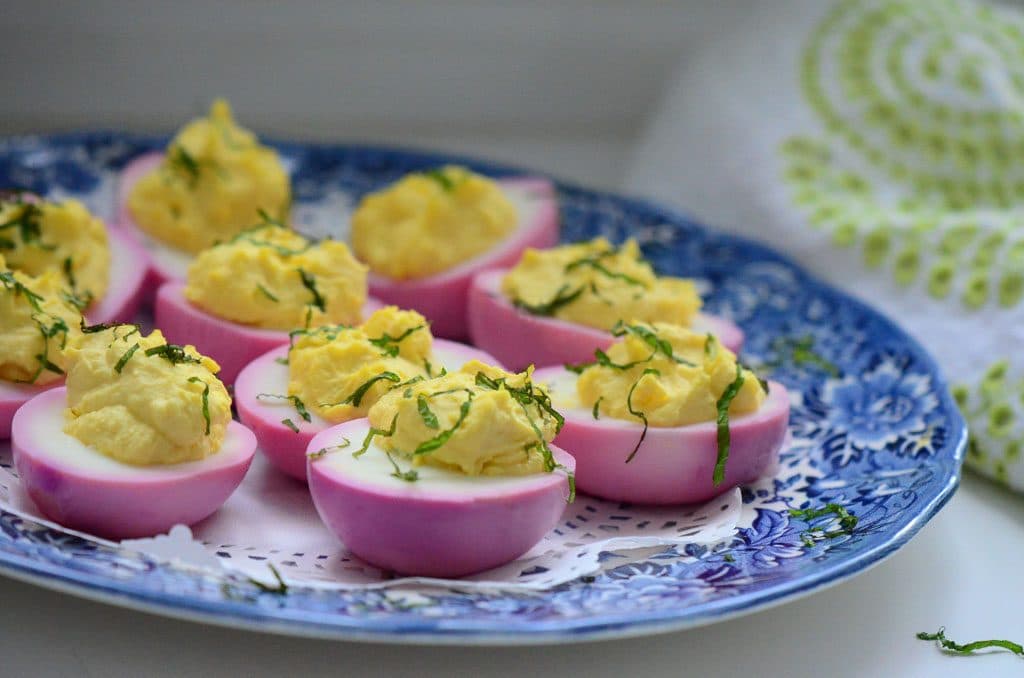
You may be wondering . . . what are pickled eggs?! They’re actually a traditional pickle. When hard-boiled eggs are peeled and stored submerged in pickling liquid for hours, it adds a flavorful and slightly tangy note to the eggs. They make a flavorful healthy snack, high in protein and a little out-of-the-ordinary too. I enjoy them any time of day, including cocktail hour!
Ingredients
This recipe for pickled eggs only requires a few ingredients that you likely already have in your kitchen:
- Eggs. Use large eggs that are about 2-3 weeks old. Although you can use fresh eggs, older eggs are a bit easier to peel after boiling. If you’re wondering if your eggs are safe to eat, you can test them by putting them in a glass of water one at a time. Toss out any eggs that float, as they are not safe to eat.
- Baking soda. Adding baking soda to the hot water will make it easier to peel the hard-boiled eggs. Don’t worry, you won’t be able to taste the baking soda!
- White vinegar. Distilled white vinegar won’t add much flavor to the pickled eggs, making it the perfect base for the pickling brine. Although you can make pickled eggs with apple cider vinegar, it will add a slightly fruity flavor and will slightly darken the color.
- Whole cloves. To add a warm spiced flavor to the eggs. Don’t substitute this with ground cloves, as it will overpower the flavor and cause the pickled chicken eggs to darken in color.
- Water. To dilute the vinegar in the pickling brine and get it to the perfect acidity.
- Beet. Although optional, adding beets to your brine will give the eggs a pretty pink hue.
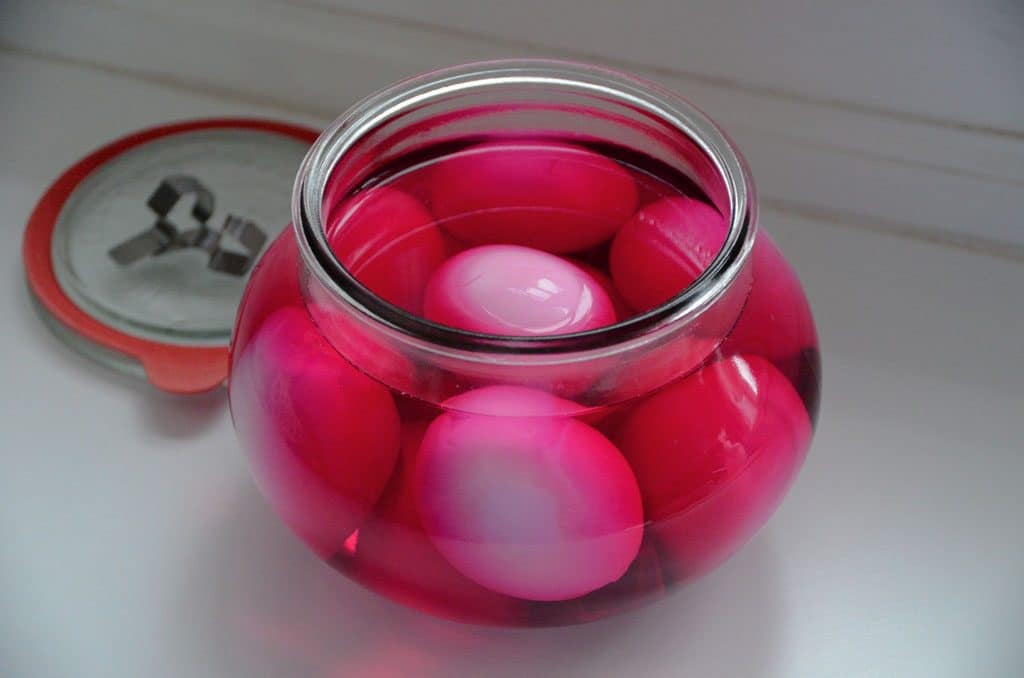
How to Make Pickled Eggs
Have you ever wondered how to pickle eggs? Making pickled eggs is so much easier than it sounds:
Step 1: In a large saucepan, cover the eggs with cool water by 1 inch and add the baking soda. Bring to a boil, then remove the pan from the heat. Cover the pan with a tight-fitting lid and let the eggs sit, off the heat, for 16 minutes.
Step 2: Run cool water over the eggs until they cool substantially. Either shake the pan now to crack the egg shells, or take each egg out individually and crack both ends, then gently roll the egg on the counter under the palm of your hand. Peel the eggs under cool running water, starting at the large end of the egg to get under the membrane.
Step 3: To lightly pickle the eggs, place eggs in a bowl or glass jar with the beets. Combine the vinegar, cloves, and water in a small saucepan. Bring to a boil. Pour the vinegar mixture over the eggs and beets, and let the eggs sit for about 2 hours for a light pink color that only penetrates the edges of the eggs.
Beet Pickled Eggs
Although you can pickle your eggs with a regular brine, adding beets to create pink eggs is so much more fun! And gorgeous. Diced red beets will naturally release their beet juice to turn your eggs pink, and diced yellow beets will turn the eggs yellow.
The color of yellow beet isn’t as saturated as the red beets, so if you’re looking for a bright sunny yellow color, I suggest adding a pinch of turmeric. Only pickle the eggs for a couple of hours to color just the edges of the eggs. You can pickle them for longer for a more intense color that penetrates deeper into the egg whites.
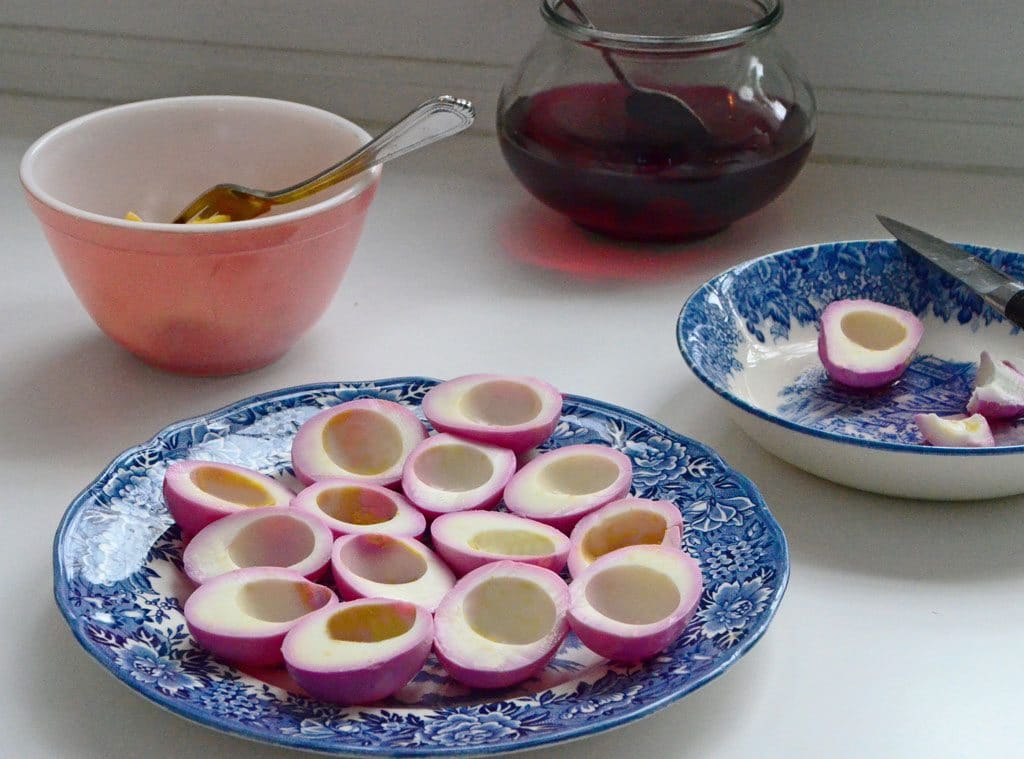
FAQs
They have a light tangy flavor, making them versatile, and can be served in many different ways. The longer you leave them in the pickling brine, the more sour they will be.
Yes. This pickled eggs recipe is not canned, so the eggs must be kept in the refrigerator to prevent botulism.
Keep the eggs in the brine if you like, or dry without the brine, in an airtight container for up to 1 week.
It’s possible to pickle eggs by placing them in pickle juice, but there are a couple of things to keep in mind. First, pickle juice draws water out of food so when you reuse it, it’s a little diluted compared to when it was freshly made. You may also want to toss the pickle juice after pickling the eggs instead of reusing it again, to ensure food safety.
By boiling the vinegar along with the other ingredients in the pickling mixture, you can extract the flavor out of your pickling spices. If your pickling juice includes salt or sugar, boiling the vinegar can also help to dissolve them.
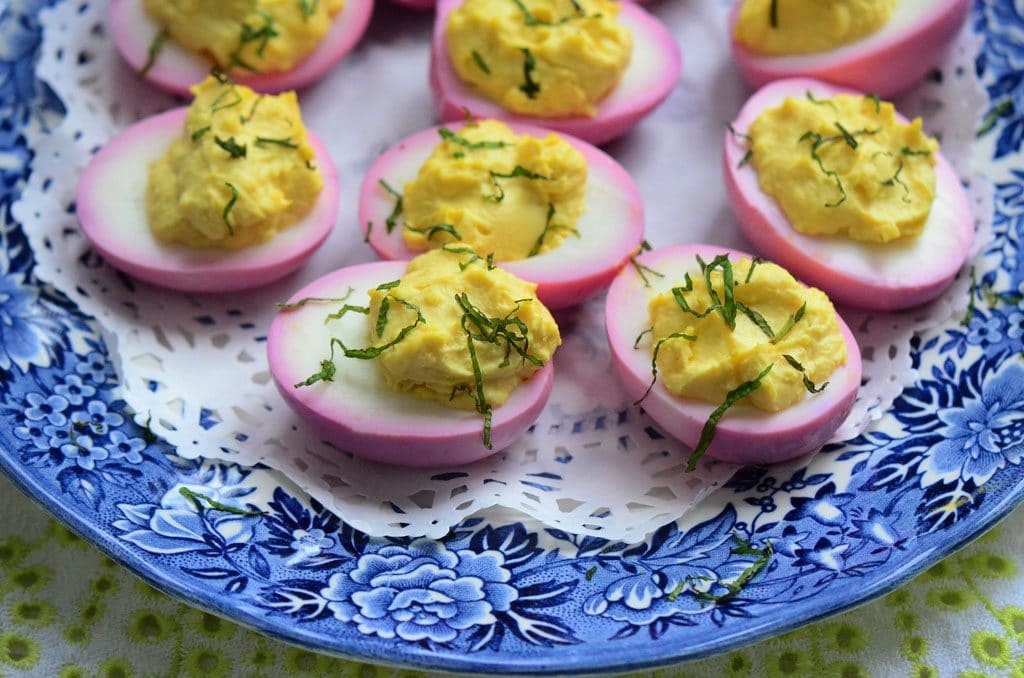
Pickled Eggs Serving Suggestions
Beet pickled eggs are great on their own as a snack with a little pinch of salt and freshly ground black pepper, or some za’atar! You can use them as a topping for a fresh salad, or make egg salad for sandwich filling.
My favorite way to serve homemade pickled eggs is to make them into absolutely lovely (and delectable) deviled eggs. These are a great addition to a brunch buffet, or as part of a mezze platter or simply served with cocktails or other appetizers. The egg yolk filling of deviled eggs has a sweetness to it that is such a nice sweet and sour pairing in the pickled egg whites.
Storage Instructions
Store the eggs in the brine, or dry without the brine, in an airtight container in the refrigerator for up to 1 week.
More Easy Pickle Recipes
Asparagus Pickles make a very elegant pickle, and the spears stay crisp with grape leaves in the glass jar.
My recipe for Bread and Butter Sweet Pickle Chips is a simple approach, with no canning involved for refrigerator pickles that taste excellent.
One of the most beloved pickles in the Lebanese pickle and preserves tradition are pink Lebanese Turnip Pickles, and like the beet pickled eggs here, these use beet in the mix for natural color.
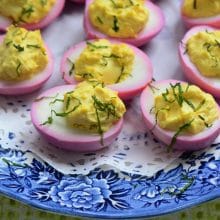
Pickled Eggs
Ingredients
- 8 large eggs, 2-3 weeks old
- 1 teaspoon baking soda
- 1 cup white vinegar
- 2 whole cloves
- ½ cup water
- ½ beet, trimmed and diced into 1-inch pieces
Instructions
- In a large saucepan, cover the eggs with cool water by 1 inch and add the baking soda. Bring to a boil, then remove the pan from the heat. Cover the pan with a tight-fitting lid and let the eggs sit, off the heat, for 16 minutes.
- Run cool water over the eggs until they cool substantially. Either shake the pan now to crack the egg shells, or take each egg out individually and crack both ends, then gently roll the egg on the counter under the palm of your hand. Peel the eggs under cool running water, starting at the large end of the egg to get under the membrane.
- To lightly pickle the eggs, place the eggs in a bowl or jar with the beets. Combine the vinegar, cloves, and water in a small saucepan. Bring to a boil. Pour the vinegar mixture over the eggs and beets, and let the eggs sit for about 2 hours for a light pink color that only penetrates the edges of the eggs.
Notes
Storage
Keep the eggs in the brine if you like, or dry without the brine, in an airtight container for up to 1 week.Nutrition
Nutrition information is automatically calculated, so should only be used as an approximation.
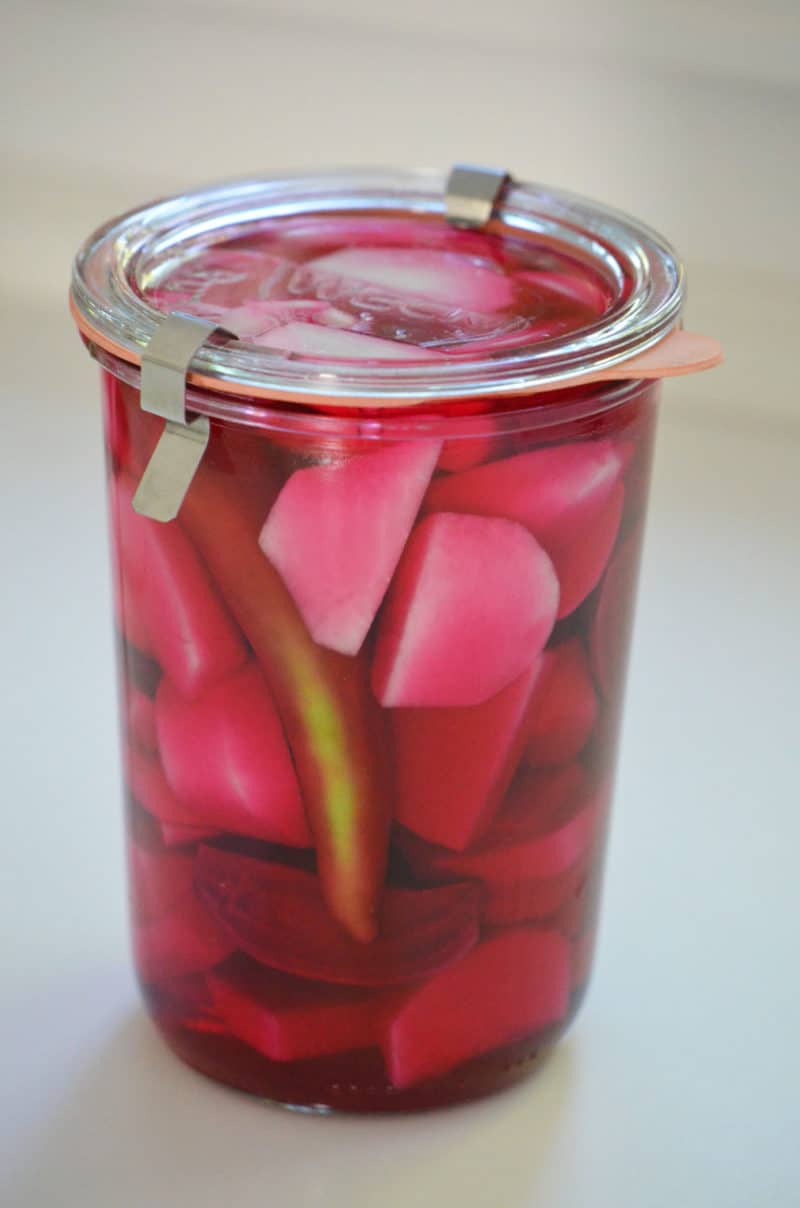
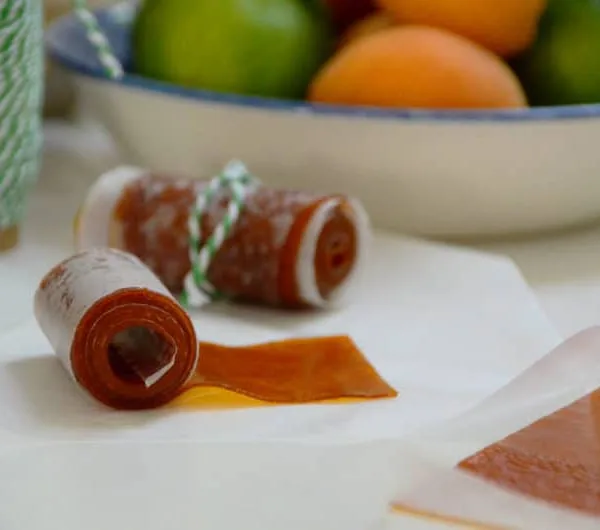

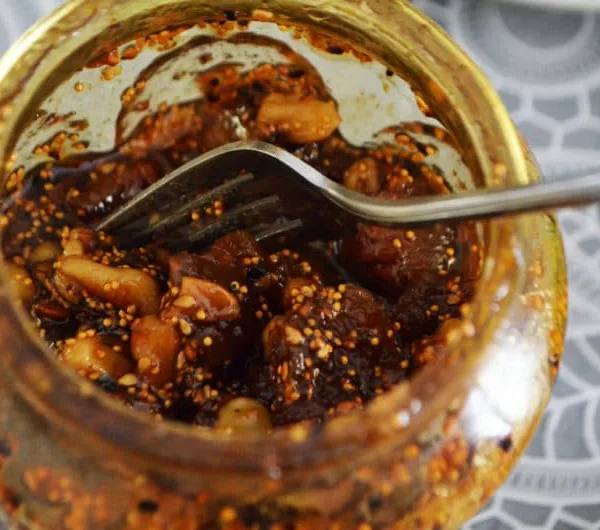







IMHO(lol), you need to go a LOT heavier on the beets!!0
More beets = even better! Thank you!